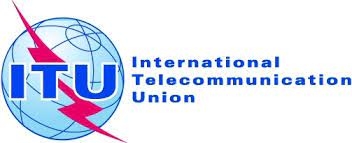International Telecommunication Union (ITU): Connecting the World Through Communication

In this blog post, we will explore the International Telecommunication Union (ITU), its purpose, establishment, location, significance, historical examples, and opportunities to join as staff or volunteer. The ITU plays a crucial role in promoting global connectivity and bridging the digital divide, ensuring that communication technologies are accessible to all.

The International Telecommunication Union (ITU) is a specialized agency of the United Nations (UN) responsible for information and communication technologies (ICTs). It was founded in 1865 and is the oldest international organization in the field of telecommunications. The ITU's mission is to promote the development and coordination of global telecommunications networks and services.

The ITU is headquartered in Geneva, Switzerland. Geneva serves as an important hub for international organizations and provides a central location for global cooperation in the field of telecommunications. The ITU has regional and area offices around the world to facilitate coordination and support its initiatives.
Significance
Global Telecommunication Standards: One of the significant roles of the ITU is to establish global telecommunication standards. These standards ensure the compatibility and interoperability of telecommunication networks and technologies worldwide. They promote seamless communication and enable the development of innovative services and applications.

Bridging the Digital Divide: The ITU is committed to bridging the digital divide, the gap between those who have access to modern communication technologies and those who do not. It works towards providing equitable access to ICT infrastructure, services, and skills, particularly in developing countries and underserved areas. By promoting digital inclusion, the ITU aims to empower individuals and communities and foster socio-economic development.
Spectrum Management: The ITU plays a crucial role in managing the radio frequency spectrum and satellite orbits. It allocates and coordinates the use of frequencies to avoid interference and ensure efficient utilization of the limited spectrum resources. This enables the smooth operation of wireless communication systems, including mobile networks, broadcasting, and satellite services.
Examples from History
Development of Telecommunication Standards: Over the years, the ITU has developed numerous standards that have shaped the telecommunication industry. Examples include the ITU-T Recommendation H.264 for video compression, which enabled the widespread use of high-definition video streaming, and the ITU-R Recommendation for 5G, which defines the technical specifications for the next-generation mobile networks.

Connectivity Initiatives: The ITU has been involved in various initiatives to enhance connectivity globally. For instance, the ITU's Connect 2020 Agenda aims to ensure that all communities around the world have access to affordable and reliable ICT services. Through programs like the ITU-D Assistance to Developing Countries, the ITU supports capacity-building and infrastructure development projects in developing nations.
Opportunities to Join
Employment: The ITU offers employment opportunities in various fields related to telecommunications, information technology, policy development, and project management. Interested individuals can visit the ITU's official website and navigate to the Careers section to explore job vacancies and application procedures.

Volunteer: The ITU also provides opportunities for individuals to contribute as volunteers. These volunteer positions may vary based on organizational needs and specific projects. Interested individuals can contact the ITU or visit their website for more information on volunteering opportunities and application processes.
The International Telecommunication Union (ITU) is a vital organization working towards global connectivity and ensuring equitable access to communication technologies. Through its standardization efforts, initiatives to bridge the digital divide, and spectrum management activities, the ITU plays a pivotal role in shaping the telecommunication industry and fostering inclusive development. By joining the ITU as staff or volunteers, individuals can contribute to advancing global communication and making a positive impact on societies worldwide.
Sources
- International Telecommunication Union. (n.d.). ITU's Work. Retrieved from https://www.itu.int/en/ITU-T/Work/Pages/default.aspx
- International Telecommunication Union. (n.d.). Connect 2020 Agenda. Retrieved from https://www.itu.int/en/connect2020/Pages/default.aspx
- International Telecommunication Union. (n.d.). Careers at ITU. Retrieved from https://www.itu.int/en/careers/Pages/default.aspx
- International Telecommunication Union. (n.d.). Volunteer at ITU. Retrieved from https://www.itu.int/en/volunteering/Pages/default.aspx
- International Telecommunication Union. (n.d.). ITU-D Assistance to Developing Countries. Retrieved from https://www.itu.int/en/ITU-D/Assistance/Pages/default.aspx
- United Nations. (n.d.). International Telecommunication Union (ITU). Retrieved from https://www.un.org/en/sections/un-system-members/international-telecommunication-union-itu/index.html
- United Nations Economic and Social Council. (1947). Agreement between the United Nations and the International Telecommunication Union. Retrieved from https://treaties.un.org/doc/Publication/UNTS/Volume%20185/v185.pdf









